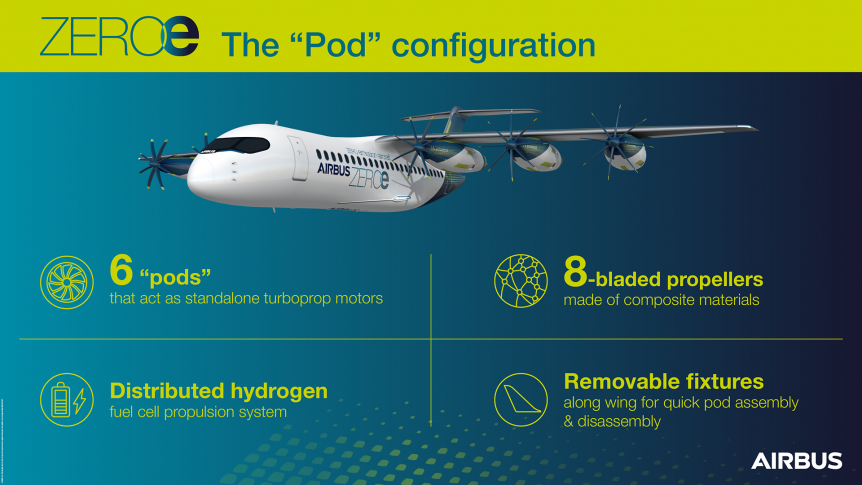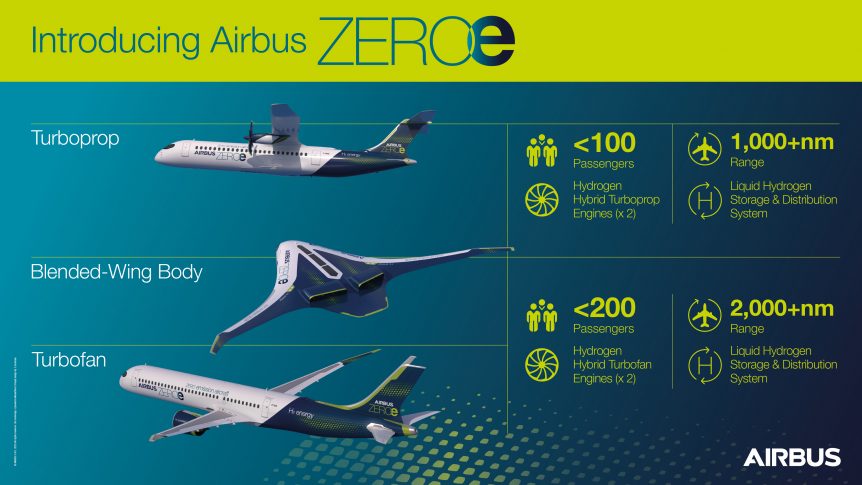Airbus announced its Zero E program in late September, showing three possible candidates for hybrid hydrogen power. Zero E, for zero emissions, is a tall order even for one of the world’s two largest aircraft companies. Now, the company makes yet another announcement – for a novel modular “pod” configuration – “a stand-alone propeller propulsion system powered by hydrogen fuel cells. It consists of the following elements:” A propeller Electric motors Fuel cells Power electronics LH2 tank A cooling system A set of auxiliary equipment Instead of housing the hydrogen fuel in the fuselage, Airbus creates a more spacious cabin by moving fuel storage to each pod. Each pod would be identical and modular. Components could be removed and replaced quickly, and if necessary, the entire pod could be removed for maintenance. One startling possibility, that of dropping a pod if it caught on fire, would probably not be well received in areas of dry forests or brushland. Liquid hydrogen …
ZEROe on the Rise at Airbus
ZEROe Airbus, taking a new direction, announced that they are, “Exploring game-changing concept aircraft – known as ZEROe – powered by hydrogen, a disruptive zero-emission technology with the potential to reduce aircraft emissions by up to 50%.” Two seem to be evolutionary, employing a different fuel and powertrain within fairly conventional airframes. The third, a blended-wing body (BWB) structure, emulates Boeing’s and NASA’s BWB. All three, though, employ hydrogen to meet the planet’s need to reduce or eliminate carbon dioxide and other emissions. All three use hydrogen hybrid power systems. The International Civil Aviation Organization (ICAO) in a 2019 report looked at the different electric and hybrid systems available. The organization included a factor examined before in this blog. “The climate benefits of electric aviation may come not only from its reduced CO2 emissions, but also from the elimination of contrails – the long, thin clouds that form in the wake of jet engines2. Although no scientific consensus exists on …


